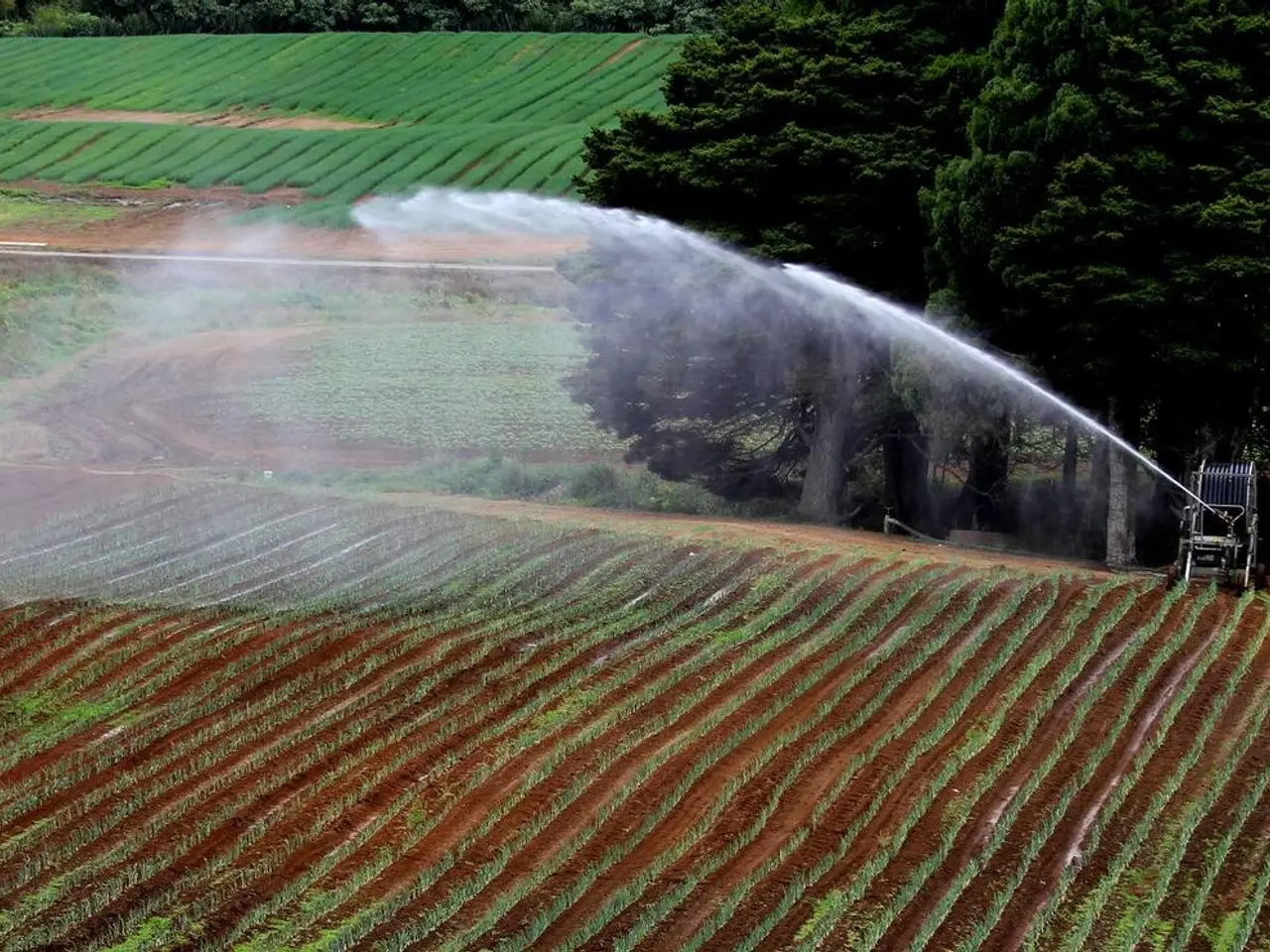Agricultural boundary markers promoting eco-friendly farming practices
The Bio-Model Region Neckar-Odenwald, an initiative managed by the Neckar-Odenwald district, Bauernverband Neckar Odenwald-Kreis e.V., and the Neckar-Odenwald district association of the Gemeindeverband Baden-Württemberg, is taking a significant step towards transparency in agriculture.
Minister of Food, Rural Areas, and Consumer Protection, Peter Hauk, has announced the introduction of field edge signs to inform consumers about agricultural environmental measures in Baden-Württemberg. These signs will provide immediate information about specific projects on site.
Three farmers from the region, Michael and Tobias Schiffmann and Philipp Sack, will be the first to use these signs. The Schiffmanns, based in Elztal, will use their sign to promote organic farming and their farm, which also grows clover for biodiversity purposes. Meanwhile, Philipp Sack, from Osterburken-Schlierstadt, will use his sign to highlight his use of biological support, specifically trichogramma wasps, to reduce the infestation of the maize borer.
The field edge signs aim to increase transparency in agricultural support and improve public acceptance. They are part of the Bio-Model Region Neckar-Odenwald's mission to promote and document environmental and nature conservation efforts in agriculture.
The Bio-Model Region Neckar-Odenwald, active since 2019, covers the entire Neckar-Odenwald district and is funded by the local agricultural authority. The current funding period ends on June 30, 2028.
In addition to these efforts, the region is also involved in marketing projects such as Bio-Markttag, Regionales Bio im Einzelhandel, BIO Markt Scheune, and Odenwald GenussTaschen. Education and awareness-raising projects include cooking workshops and Bio-Brotboxes for school starters.
The Common Agricultural Policy (CAP) strategy plan for the second pillar in Baden-Württemberg has allocated an additional 1.5 billion euros for the years 2023 to 2027, with about 90% for agriculture. This funding will contribute to maintaining biodiversity, protecting the soil, improving air and water quality, and combating climate change, as the Bio-Model Region Neckar-Odenwald strives to do.
Farmers can register with their local agricultural authority to receive free field edge signs to document and promote their environmental and nature conservation efforts. Citizens should be able to recognize the direct impact of these funds on site through the field edge signs.
The regional manager of the Bio-Model Region Neckar-Odenwald is based at the Neckar-Odenwald district administration. One of the projects handled by the Bio-Model Region Neckar-Odenwald is on-farm slaughtering (kLasSE Fleisch).
This initiative is a significant step towards a more sustainable and transparent agricultural sector in Baden-Württemberg, and it is expected to inspire similar efforts in the future.
Read also:
- visionary women of WearCheck spearheading technological advancements and catalyzing transformations
- Recognition of Exceptional Patient Care: Top Staff Honored by Medical Center Board
- A continuous command instructing an entity to halts all actions, repeated numerous times.
- Oxidative Stress in Sperm Abnormalities: Impact of Reactive Oxygen Species (ROS) on Sperm Harm








